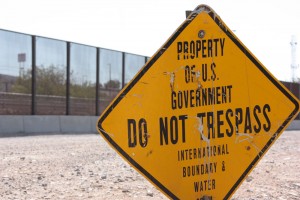Caring for thousands of children crossing illegally into the U.S. to cost $868 million in 2014
|
EL PASO – Employees at a children’s shelter in Ciudad Juarez, Mexico, found 12-year-old Noemi Alvarez Quillay’s lifeless body hanging from a shower-curtain rod last March. The Ecuadorian girl had been trying to cross the border to reach her parents in New York when police apprehended her. She is only one of thousands of unaccompanied children braving exhausting heat during the day, freezing winds throughout the night, gang violence and corrupt authorities during their arduous journey north to the U.S. border. For Alvarez, the perilous journey ended within sight of the bridge that connects the two countries, but for her that was one bridge too far. Mexican authorities ruled her death a suicide because she was in fear of being deported back to Ecuador.
